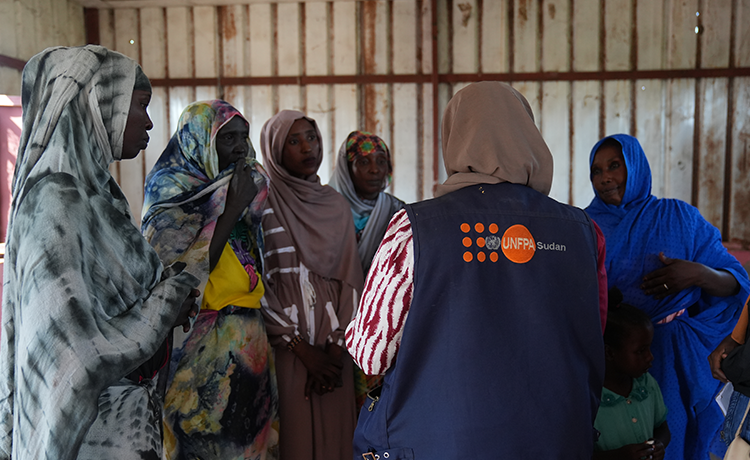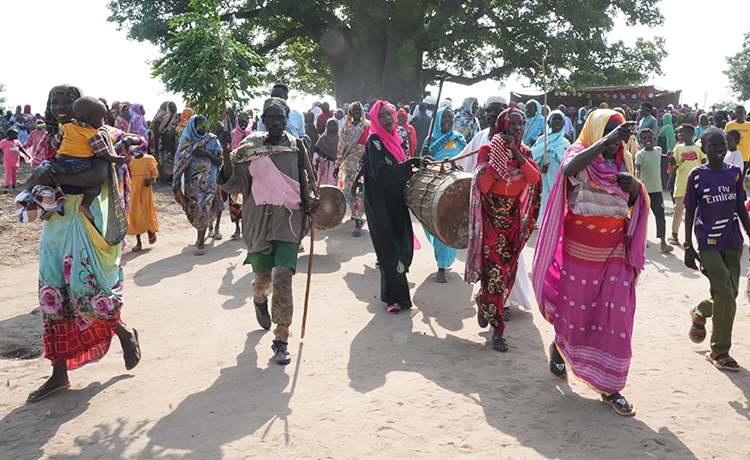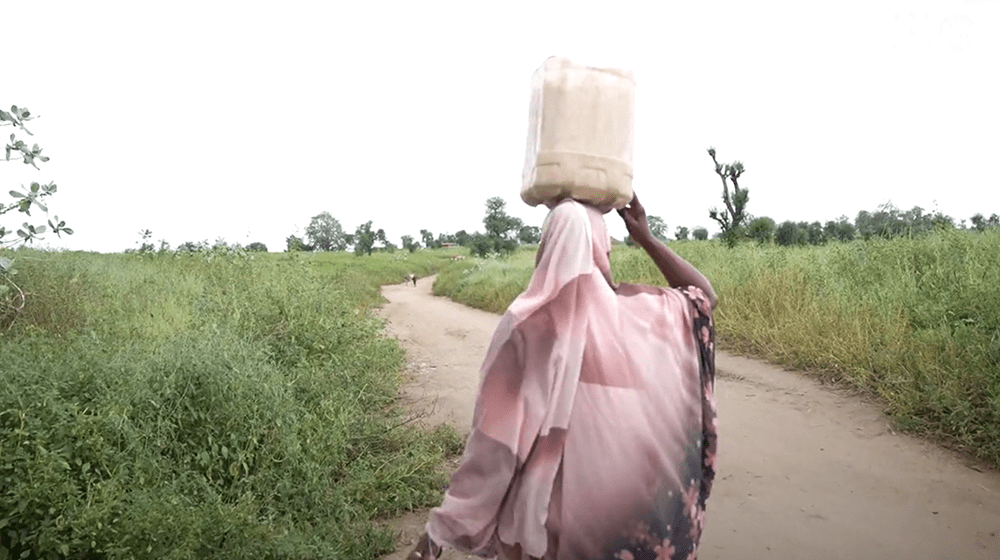BLUE NILE STATE, Sudan – Haleema Ibrahim, 36, walked a few minutes back to her home in the village of Shanisha, in Sudan’s Blue Nile State, carrying a basket of freshly-ground grains from a newly-built flour mill.
“We used to walk long distances to grind our grain,” Ms. Ibrahim told UNFPA, the UN sexual and reproductive health agency. “Women and girls faced harassment along the way – we had to run fast to avoid it, often spilling most of the flour.”
Like many rural villages, hers is not well connected to basic public services, and it usually falls to women and children to walk for miles to reach flour mills, water pumps and other essentials. For 36-year-old Salma, who arrived in Shanisha to escape the conflict raging in her home town of Khartoum, the remote location presented its own series of safety concerns.
“I accompanied my daughter to grind grains. It's an exhausting journey,” she said. “There was no grinder in our village so we had to travel to a distant town, where people harass us on the streets.”
Women and girls in Sudan are bearing the brunt of the war's impact: Journeys to hoped-for havens are arduous, mothers carrying children on their backs, confronting violence, coercion, poverty and hunger.
In many places, the displaced find themselves sharing the same struggles as their hosts: Food and clean water are scarce, access to health services almost non-existent, and tensions are rising. Sexual violence, harassment, abuse and exploitation have become rampant, both where fighting is ongoing and in communities where displaced people are arriving in search of safety.

Treading a dangerous path
As the economic and security situation spirals, access to health and protection support is crumbling with it. The UN estimates that 4.2 million people across Sudan are at risk of gender-based violence as the conflict continues and access to health and protection support crumbles.
“I used to go to the mills and had countless problems,” said Om Kolthom, a 40-year-old woman from Khartoum. “Once I came across six men who demanded money for passage.”
Instead of concern for their welfare upon their return from the trip to the mill, women said they often faced scrutiny and criticism from family members. “They ask questions like, 'What took you so long?' and ‘Why did you lose half of the flour?’” Ms. Ibrahim told UNFPA.
The threat of sexual violence for women and girls in Sudan is pervasive to the extent of being normalized. Speaking with a UNFPA-supported community protection network seeking to lessen this exposure to abuse, many expressed the need for closer, safer and more accessible basic services – including mills, so they could still feed their families yet safeguard their bodily autonomy.
It’s a call that was heeded: The mill is the first to be installed by UNFPA in Sudan and is so far serving some 30,000 people in Shanisha. UNFPA Representative in Sudan Mohamed Lemine said, “This project is an example of how women and girls drive the planning process of our programmes.”
UNFPA has undertaken many similar projects in other humanitarian contexts – such as ensuring bathroom facilities in refugee camps are well lit and distributing whistles and torches with dignity kits containing underwear and menstrual pads.
For Om Kolthom, the intervention has been a relief. “With this new mill, we can send even the youngest person at home to grind the grains. It takes less than 5 minutes now."

People-centred programming
With the risk of sexual violence all too often undermining women’s and girls’ very ability to survive as well as their sexual and reproductive health and rights, holistic, survivor-driven initiatives can be key.
Thanks to partners such as the European Union, across Sudan UNFPA has established five new community protection networks in the Al Jazirah, West Darfur, Red Sea and Northern States and is supporting 167 active networks across the country.
Multiple safe spaces and temporary clinics have also been set up, serving women and girls from both displaced and host communities. These offer specialized support and response to gender-based violence, including post-rape kits, sexual and reproductive health assistance, psychosocial services and referrals to advanced care.
Since mid-April 2023, more than 6 million people have been forced to flee their homes in Sudan due to the ongoing conflict. Of those, 4.8 million are displaced within the country, more than three quarters of whom are women and girls of reproductive age.
As the crisis in Sudan only becomes more entrenched, there is an urgent need for ramped-up funding and response to protect the safety and rights of women and girls who are acutely vulnerable to violence and abuse.


